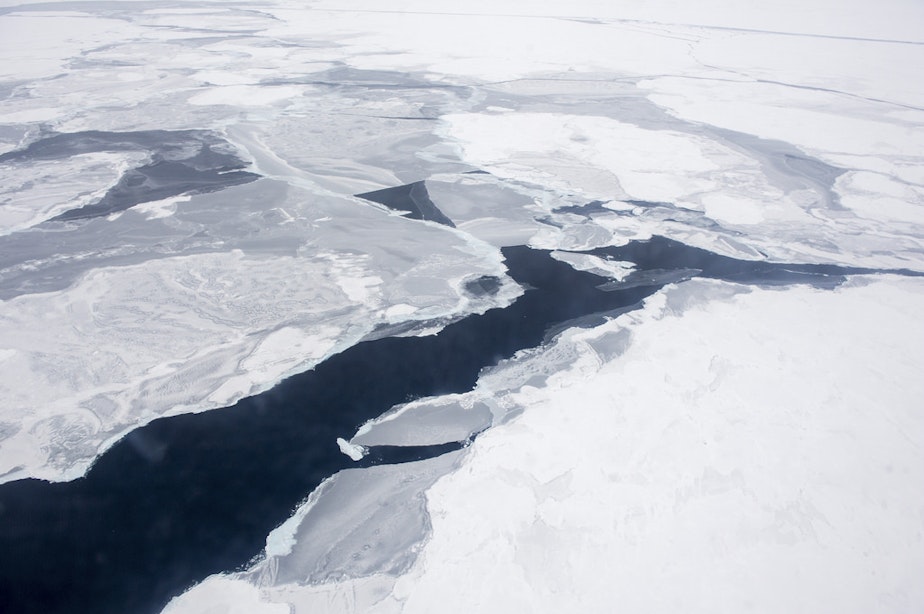Antarctica’s sea ice dropped dramatically last year. UW looked into why

Scientists predict the waters around Antarctica will be among the last places to experience global warming. In 2016, however, Antarctic sea ice dropped to a record low. Ice typically increases there, slightly, each winter.
The 2016 ice extent was recorded to be 800,000 square miles smaller than average. The drop was not preceded by scientists, but now University of Washington researchers have pinpointed what caused it.
University of Washington researcher Malte Stuecker led the study. He found it told a story of how connected the earth's oceans are.
The ice shrunk because of weather conditions both in the Tropical Pacific Ocean and in the South Pole.
Stuecker: "There was not enough to zoom in locally and just study the conditions in Antarctica, we really needed to take a more global approach and see what was happening the tropics, and it really shows us the climate system is very interconnected."
Sponsored
He called it a "perfect storm." First, conditions in the Pacific Ocean in 2015-2016 caused warmer ocean temperatures. To the south, in 2016, weak winds around Antarctica prevented new ice from forming. Wind typically pushed the older ice out, allowing new ice to form.
Stuecker: "This combination is really rare. We looked at climate model simulations, and [it's] something that we see only every 110-120 years."
Stuecker said rapid ice decline isn't expected to happen very often, but he expects a slow decrease in sea ice worldwide due to climate change. That decline is already happening in the Arctic.
The study was published in the journal Geophysical Research Letters.

